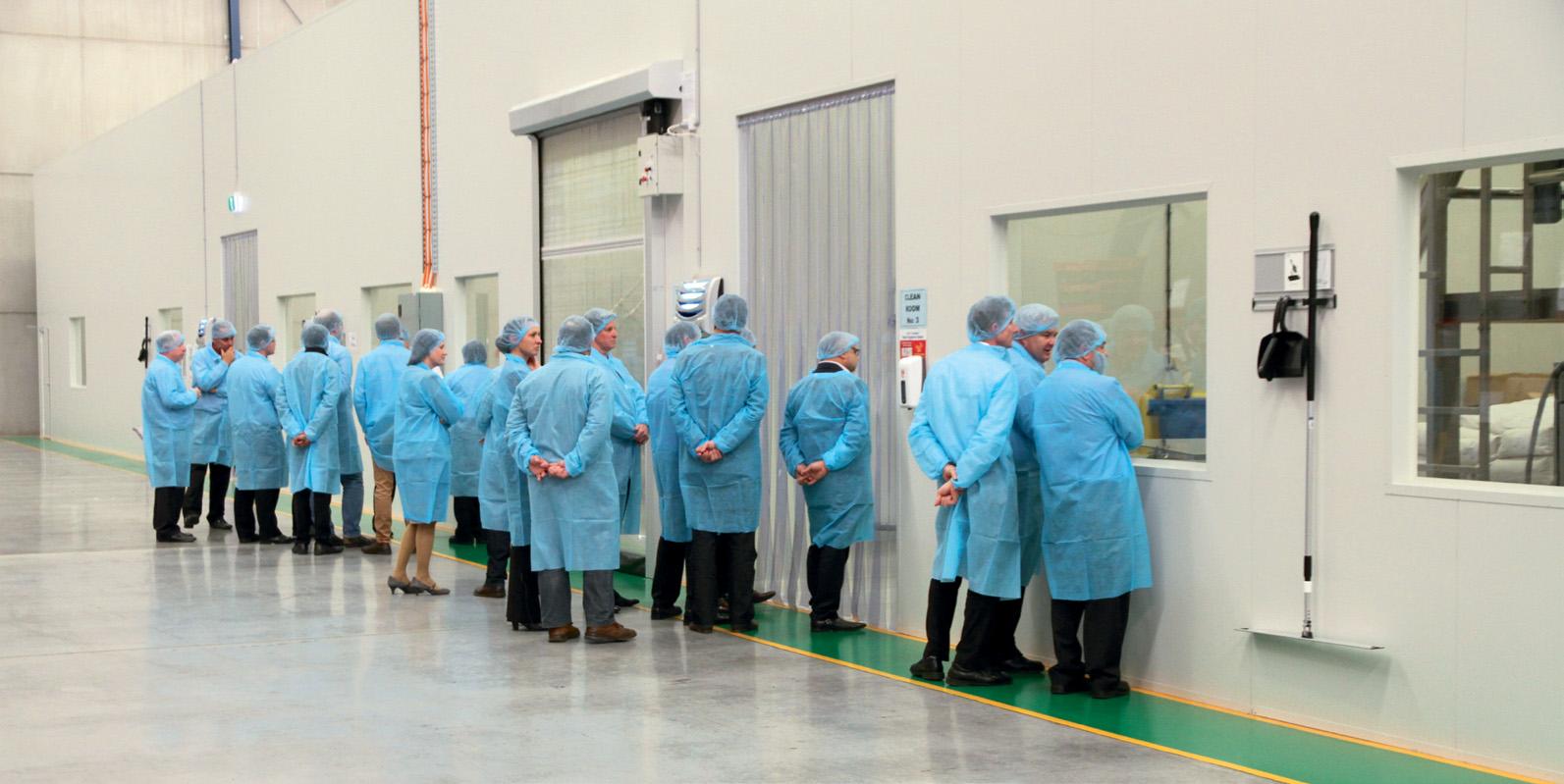Multipack’s new food manufacturing and packing plant at Ingleburn in southern Sydney adds options for food-grade, fully certified contract packing.
David Burton reports.
Multipack opened its Ingleburn facility officially on Friday, September 11, although the operation had been quietly running over the previous two months as new packing equipment was commissioned and staff trained.
The new facility, the final link in the modern supply chain for Multipack, which was founded in 1992, sees the emergence of separate divisions: Multipack Food at Ingleburn and Multipack Retail at the company’s headquarters in nearby Moorebank.
Speaking ahead of the official ribbon-cutting ceremony, founding partner Frank van den Berg said: “I started the company in 1992 at Brookvale [on Sydney’s northern beaches] in a 100sqm factory – pretty similar to this little marquee where we are assembled – and my brother and I were the only employees.
“I’m proud to say that after moving 13 times, we’re now operating from two major sites …
We now employ well over 100 staff, and we’re growing. We’ve got the operations segregated into two major factories, which together comprise a total of about 8,000sqm of factory and warehousing.”
Adaptable facility
Guests, customers and suppliers were taken in small groups through the facility. Retail World joined the group hosted by Sales and Marketing Director Brad Devine and received a full rundown on the capabilities of the individually configured clean rooms. These are separately sealed areas, each of which is set up for different packaging operations – from liquids and powders to manual filling lines for Christmas promotions.
“For those who don’t know, this is all purpose-built,” Mr Devine said. “We took the empty shell in about May this year and we’ve built all of this on-site, everything you see here, all of these facilities, all the clean rooms down the back, all the racking, a sluice area where we can keep the trucks that come in, in a closed environment – all of this we’ve created by design for this site.
“There’s a series of six clean rooms at the moment. We’ve allowed enough room to extend across the back and up the other side, so we can pretty much go close to doubling the site’s output – maybe even a little more. We designed it that way intentionally, because we expect to grow.”
Taking pride of place in one of the clean rooms was a vertical form-fill and seal line under a multihead weigher. On official opening day, this was filling a householdname confectionery-brand product under contract for a major FMCG multinational.
Mr Devine said handling this product was a supply chain initiative by Multipack, which was able to provide the last link in the customer supply chain.
“What we enable them to do is buy the product from the lowest-cost source they can locate – in this case, their sister company in the US,” he said. “The product is shipped to us in big totes, already mixed. The source factory is producing the product at incredibly high speeds in fully automated facilities, so when you say to them, ‘Can you pack that in a specific-size bag for Australia and at our relatively tiny volumes?’ it just isn’t economically or logistically feasible.
“Our monthly volumes packs are like an hour’s work for them. So, what our ‘supply chain optimisation’ model enables them to do is to get the desired product at the best price from anywhere in the world, ship it at the lowest cost in bulk, then tailor it here, close to market, for the individual requirements of their retail customers – typically Coles, Woolworths, ALDI, Costco and the independents.”
Flexibility the driving force
Another room, and the largest on-site to date, is known as the flexible room and lives up to its name with the range of production options it can cope with.
“You can see we’re doing a hand-packing line for a Christmas promotion at one end of the room and a flow-wrap hangsell retail SKU at the other end,” Mr Devine said.
With the move to global sourcing and mega factories among the tier-one grocery brands, operations such as Multipack Food are an important stage in the supply chain. They allow some products to hit grocery shelves that otherwise would not meet minimum production runs.
It is not just flexibility that works for Multipack Food, though. The Ingleburn plant has been designed for mass pallet storage as well, with close to 1,000 pallets of both finished goods and incoming packaging and product ingredients. Mr Devine pointed out that the site and current set-up allowed “plenty of room again for growth, one-off big projects and that sort of thing”.
The site also includes its own water-treatment plant – bringing water in from the mains that is then UV-treated and de-ionised.
“We purify the water, which can then be used in all sorts of foods, liquids and beverage products for packaging,” Mr Devine said.
“We process and package retail products, like soups and stocks, in this fashion.”





